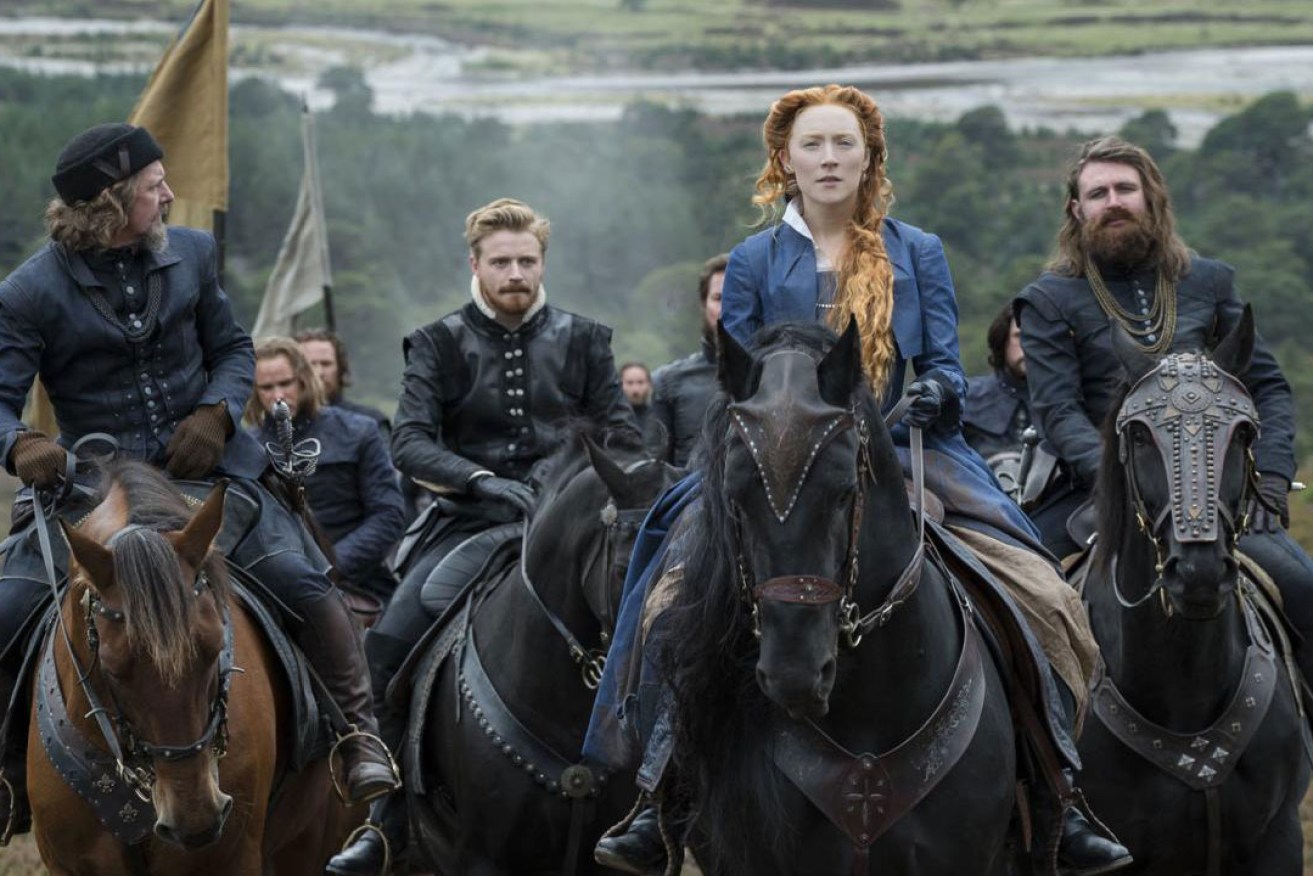Film review: Mary Queen of Scots
Saoirse Ronan and Margot Robbie shine as two of history’s most misunderstood queens in director Josie Rourke’s timely, feminist take on a period packed with political intrigue.


Opening with a flash-forward to the execution of Mary Stuart (Saoirse Ronan), this film leaves no doubt as to the grisly fate of Mary Queen of Scots, a monarch with as much claim to the throne as her cousin, Elizabeth I (Margot Robbie).
Brimming with palace intrigue, political conspiracy and religious zealotry, the screenplay was adapted from British historian John Guy’s award-winning biography Queen of Scots: The True Life of Mary Stuart, by Beau Willimon, the creator of House of Cards.
Willimon’s deft hand with on-screen political backstabbing and betrayal is beautifully translated to the Elizabethan era, where he creates the claustrophobic atmospheres surrounding the two queens in their respective royal courts, which are packed shoulder to shoulder with men constantly seeking to manipulate, undermine or overthrow them.
Veteran stage director Josie Rourke has moved seamlessly to the big screen, giving no indication of this being her debut film. Her casting, pared-back dialogue and use of outdoor locations all combine to keep the audience focussed, which is no mean feat when faced with the complex power dynamics constantly at play.
Rourke has structured the film to contrast how the life decisions and political strategies of these formidable women affected not only their ability to rule but also to maintain their grip on their crowns. Elizabeth chose a single life to protect herself from ambitious men attempting to usurp her throne through marriage and consolidated her power by refusing to produce or even name an heir.
Mary, in contrast, chose to marry and as a result found her power constantly under threat from husbands Lord Darnley (Jack Lowden) then Lord Bothwell (Martin Compston). Once she’d given birth to the child who would eventually become King of both Scotland and England, she was additionally vulnerable since she’d become disposable, her power now able to be wielded by whomever controlled her heir.
Interestingly, the film’s minor roles were cast with a touch of colour-blindness; Gemma Chan and Adrian Lester add some welcome diversity to the usual all-white casting of conventional period dramas. David Tennant makes an appearance (under a beard that would make Gandalf jealous) in the juicy role of John Knox, whose virulent sexism and religious zealotry from the pulpit came across as an Elizabethan version of Fox News.
With its clear emphasis on institutionalised misogyny, this film casts fresh light on two of British history’s most powerful yet maligned women. This is a timely and most welcome interpretation of an intriguing period, leaving us with the sense that had religion and the laws of succession not pitted these impressive queens against each other, they may have been allies, or perhaps even friends.




